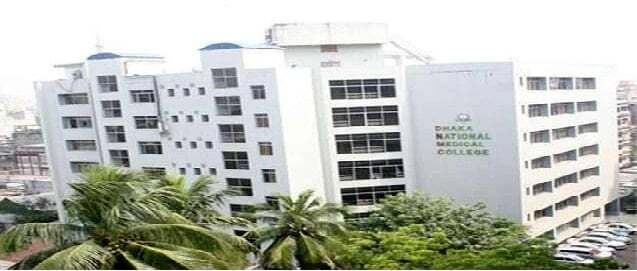Study MBBS in Singapore: Bachelor of Medicine and Bachelor of Surgery, Eligibility Criteria, Fee Structure
Studying medicine in Singapore offers a robust platform for aspiring doctors. The country has a reputation for high educational standards and a world-class healthcare system, making it an attractive destination for international students, particularly from India. With a focus on excellence, the MBBS course in Singapore prepares graduates not only with the necessary knowledge but also with practical skills needed to thrive as a doctor in Singapore.
About Singapore
Study MBBS in Singapore: Considerations for Medical Aspirants For medical aspirants, pursuing MBBS in Singapore is a rewarding path, offering access to top-tier education. It is essential to understand that medical aspirants is the MBBS journey in Singapore, which involves rigorous study and training. After gaining admission, students must make an approval request to the Singapore immigration to ensure they can legally reside in Singapore. Following this, they can attend academic classes in one of the renowned medical institutions. Ensuring your request to the Singapore immigration is approved is a critical step before beginning your academic journey in Singapore. Once approved, students can proceed to Singapore and then make arrangements for their stay. It is important to complete these steps before starting academic classes in Singapore. Ensuring your request to the Singapore immigration is processed is crucial for a smooth academic experience in Singapore.
| Category | Details |
|---|---|
| Capital | Singapore |
| Official Language | English, Malay, Tamil, and Mandarin |
| Currency | Singapore Dollar (SGD) |
| Number of Universities (Medical) | 3 main universities (National University of Singapore, Duke-NUS Medical School, Lee Kong Chian School of Medicine) |
| Average Tuition Fees for MBBS | 28 – 50 lakh INR per year |
| Cost of Living in Singapore | Approximately 1 – 1.5 lakh INR per month |
| Minimum and Maximum Temperature | 25°C – 32°C |
| Exchange Rates to INR | 1 SGD = 60 INR (approx.) |
| Climate | Tropical rainforest climate, hot and humid year-round |
Cultural Insights and Geographical Overview of Singapore
Singapore is a vibrant and multicultural city-state located in Southeast Asia. It is known for its efficient public services, cleanliness, and low crime rates. The country is divided into several regions, each with its unique characteristics, catering to various cultural and social backgrounds. This diverse environment enriches the educational experience, particularly for students living who have come to study.
The Educational System to Study MBBS in Singapore 2024
The educational system in Singapore is rigorous and focused on high-quality outcomes. It emphasizes practical experience alongside theoretical knowledge, making it conducive for those who wish to pursue MBBS. The two primary institutions offering the MBBS course in Singapore are the National University of Singapore (NUS) and Nanyang Technological University (NTU), both of which are recognized globally for their medical programs
Want To Study in Singapore?
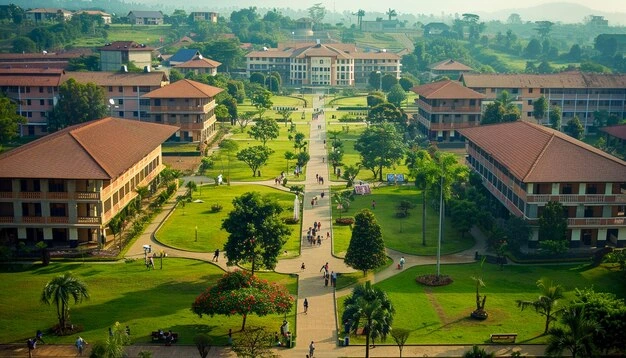
Why Study MBBS in Singapore bachelor of medicine and bachelor Of Surgery 2024-25?
Overview of Medical Education in Singapore
Singapore offers a comprehensive and holistic approach to study medicine. The curriculum includes a mix of clinical training and research opportunities that equip students with the necessary skills to excel in the medical field. The medical curriculum is designed to ensure that graduates are well-prepared to tackle real-world challenges.
High-Quality Education Standards study medicine in singapore
Singapore has always been at the forefront of educational excellence. It was ranked among the top countries for its educational system, with stringent quality control measures in place. The country is home to medical colleges of the country that are approved by the Medical Council of India (MCI), ensuring that the medical degree obtained here is recognized globally.
Opportunities for International Students
With a welcoming atmosphere, Singapore is a preferred destination for international students. The country not only offers quality education but also ample opportunities for networking and career development. Singapore for international students provides a vibrant community, enabling them to build connections that can aid their future careers.
Global Recognition of Medical Degree
A medical degree from Singapore holds significant value worldwide. Graduates are equipped with both theoretical knowledge and practical skills that are essential for modern healthcare environments. MBBS from Singapore opens doors for career opportunities not only in Singapore but also in various countries, thanks to its internationally recognized standards.
Diverse Cultural Environment
The multicultural landscape of Singapore enhances the educational experience for students. They are encouraged to engage with different cultures, which is essential in the field of medicine where understanding diverse backgrounds can influence patient care. This diversity is a key factor for many medical aspirants who prefer to study medicine in Singapore.
Want To Study in Singapore?
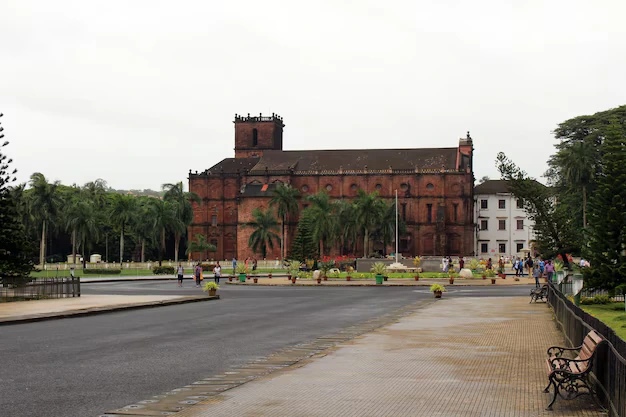
Study MBBS in Singapore for Indian Students 2024-25
Welcoming Environment for Indian Students
Singapore offers a friendly and supportive environment for international students, especially for those from India. The country is known for its multicultural society, where Singapore is divided into various communities, making it easier for Indian students to find familiarity amidst diversity. This welcoming atmosphere encourages students to come to study in Singapore and pursue their dreams in medicine.
Opportunities for Indian Medical Aspirants
Studying MBBS in Singapore for Indian students presents numerous opportunities. The country has consistently been ranked as a leading destination for quality education, providing students with a chance to pursue MBBS in an advanced healthcare setting. The medical colleges in Singapore offer rigorous training and exposure to cutting-edge medical practices, which are essential for developing competent healthcare professionals.
Cultural Adaptation and Support
Indian students prefer to study MBBS in Singapore due to its proximity and cultural similarities. The presence of a significant Indian diaspora means that students can find community support, cultural events, and familiar cuisines. Additionally, universities provide resources to help international students adapt culturally and socially, ensuring a smoother transition to life in Singapore.
Academic Excellence at Top Medical Colleges
The MBBS colleges in Singapore are known for their high academic standards and innovative teaching methods. Institutions like the National University of Singapore (NUS) and Nanyang Technological University (NTU) offer programs that emphasize both theoretical knowledge and practical skills. Students are encouraged to gain hands-on experience through internships and clinical placements, ensuring they are well-prepared for their future careers.
Networking and Community
Studying in Singapore allows students to build a global network of peers and professionals. The vibrant student community is not only beneficial for social interactions but also for professional connections. Indian students can engage in various extracurricular activities and student organizations, which enhance their educational experience and expand their professional network.
Want To Study in Singapore?
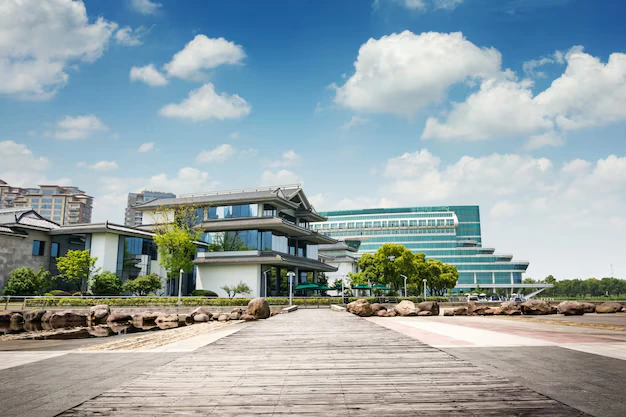
Admission Process for Studying MBBS in Singapore 2024-25
MBBS in Singapore Eligibility Criteria and Required Documents for Studying MBBS in Singapore 2024-25
To gain admission to MBBS programs in Singapore, candidates must meet specific MBBS in Singapore eligibility criteria:
- Educational Qualification: Students must have completed their 10+2 education with a minimum aggregate of 50% in Physics, Chemistry, and Biology from a recognized board.
- Entrance Exams: Indian students must pass the NEET examination. Additionally, proficiency in English is demonstrated through standardized tests like IELTS or TOEFL.
- Age Limit: Candidates should be at least 17 years old by the time of admission.
- NEET Qualification: Indian students must qualify for the National Eligibility cum Entrance Test (NEET) to be eligible for MBBS admission in Egypt. For the 2024 academic year, the NEET qualifying marks are:
- 50th percentile (720-162) for general category students
- 40th percentile (161-127) for SC/ST/OBC categories
- 50th percentile (720-162) for general category students
Required documents typically include:
- Academic transcripts
- NEET scorecard
- English proficiency test results
- A valid passport
- A letter from the concerned medical college in Singapore.
Application Process and Deadlines to Study MBBS in Singapore 2024
The application process for studying MBBS in Singapore involves several steps:
- Research and Shortlisting: Identify universities that meet your academic and career goals.
- Entrance Exam Preparation: Register for required entrance exams and ensure a solid foundation in science subjects.
- Document Collection: Gather necessary documents, including transcripts and test scores.
- Application Submission: Complete online applications through university portals and pay applicable fees.
- Interviews: Some universities may require interviews as part of the admission process.
- Offer Letter: After review, successful candidates will receive an offer letter, which must be accepted within the stipulated timeframe.
Visa Requirements and Process for Studying MBBS in Singapore
Once accepted, students must apply for a student visa to study in Singapore. The visa requirements include:
- A letter of acceptance from the concerned medical college of Singapore.
- Documents proving financial capability to cover tuition and living expenses.
- Health insurance coverage.
The process involves the following steps
- Visa Application: The concerned medical college will file the Singapore student pass visa approval request on behalf of the student.
- Approval Notification: After processing, students will receive notification about their visa approval.
- Visa Collection: Students must collect their visa from the Singapore embassy in India.
Want To Study in Singapore?
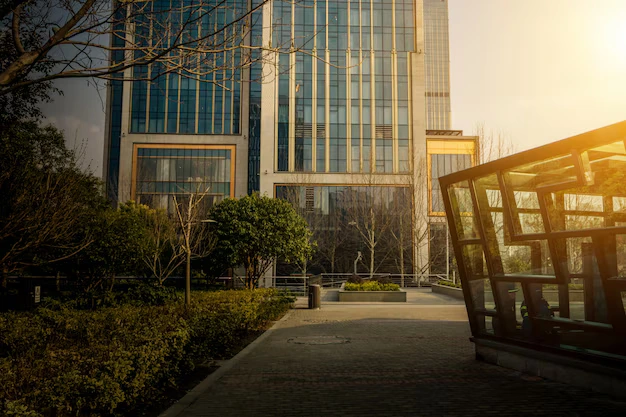
Fee Structure and Costs to Study MBBS in Singapore 2024-25
Tuition Fees to Study MBBS in Singapore
Studying MBBS in Singapore is a significant investment, with tuition fees varying depending on the institution. The MBBS fee structure in Singapore typically ranges from approximately S$68,950 to S$77,600 (INR 42.92 lakhs to 48.30 lakhs) annually(
Other Fees and Financial Costs Associated with Studying MBBS in Singapore
In addition to tuition fees, students must budget for other expenses, including:
- Living Expenses: Monthly living costs in Singapore can range from SGD 750 to SGD 2,000 (INR 46,691 to 1.24 lakhs), depending on lifestyle and accommodation choices.
- Miscellaneous Costs: This includes health insurance, textbooks, transport, and personal expenses, which can add an additional SGD 500 (INR 28,000) monthly.
- Application and Visa Fees: Fees associated with the application process and obtaining a student visa from Singapore are also necessary to consider.
Detailed Breakdown of Fees
A detailed breakdown of the MBBS fee structure in Singapore includes:
- Tuition Fees: As noted above, the tuition varies by university.
- Accommodation Costs: Renting a shared apartment can cost between SGD 1,500 to SGD 2,000 (INR 82,000 to 1.10 lakhs) monthly.
- Food and Living Expenses: Students should expect to spend around SGD 300 to SGD 500 (INR 16,500 to 27,500) on food monthly.
Hidden Costs to Study MBBS in Singapore
While planning your finances, it is important to account for hidden costs that may arise during your studies:
- Textbook and Material Costs: These can add up to several hundred SGD over the course of the program.
- Emergency Expenses: It’s prudent to have savings for unexpected costs like medical emergencies.
- Local Transportation: Though public transport is affordable, it can accumulate to a notable expense over time.
Financial Planning to Study MBBS in Singapore
Financial planning is essential for students pursuing an MBBS degree in Singapore. Here are some strategies:
- Scholarships and Grants: Singapore offers various scholarships for international students, such as the MOE Tuition Grant Scheme and the ASEAN Undergraduate Scholarship, which can help cover tuition fees.
- Student Loans: Some banks offer education loans that can cover tuition and living expenses for studying in Singapore.
- Part-Time Work: Students can explore part-time job opportunities to manage living costs while pursuing their medical education.
Want To Study in Singapore?
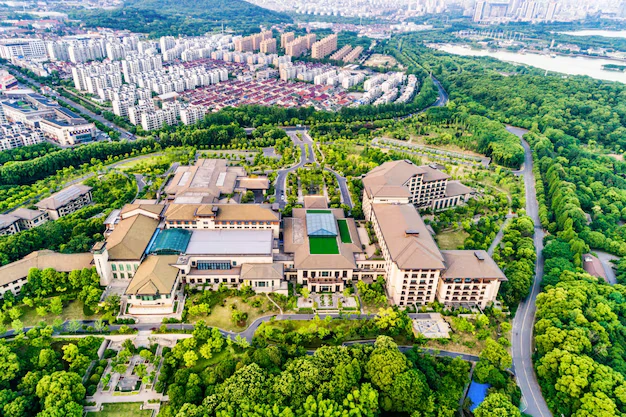
Top Medical Universities to Study MBBS in Singapore 2024-25
Best Medical Universities to Study MBBS in Singapore
Singapore is home to several top-ranked medical universities recognized for their rigorous academic programs and clinical training. These institutions are medical universities in Singapore approved by the Medical Council of India (MCI), ensuring that students receive quality education that is acknowledged internationally.
| Name of Medical College | MBBS Fee Structure |
|---|---|
| National Skin Centre | 32,47,000 INR Per Year Tuition Fee |
| SGH Postgraduate Medical Institute | 12,00,000 INR Per Year Tuition Fee |
| Academy of Medicine Singapore | 27,00,000 INR Per Annum Tuition Fee |
| Duke-NUS Graduate Medical School | 28,00,000 INR Per Annum Tuition Fee |
Want To Study in Singapore?

Advantages of Studying MBBS in Singapore 2024-25
World-Class Medical Education
Singapore was ranked among the top countries globally for its educational standards, especially in the medical field. The medical universities in Singapore approved by the Medical Council of India (MCI) offer rigorous training programs that prepare students for a successful career in medicine. Singapore has the best facilities and faculty, providing students with a comprehensive education that blends theoretical knowledge with practical skills.
Opportunities for Research and Development
Students in Singapore benefit from extensive research opportunities, particularly in medical innovation. The curriculum is designed to promote critical thinking and encourage students to engage in research projects, thereby enhancing their knowledge and practice their medical skills. Institutions like the National University of Singapore (NUS) emphasize research-driven education, making it an ideal destination for aspiring medical professionals.
Multicultural Environment
Singapore offers Indian students a multicultural environment that enhances their learning experience. The diverse population helps students adapt quickly and easily. With a significant Indian community, cultural similarities make it easier for students to feel at home while able to move to Singapore for their academic classes. This aspect is particularly appealing for many international medical aspirants.
Quality of Life for Students
Living in Singapore provides students with a high quality of life. The country is known for its safety, cleanliness, and efficient public services. With a low crime rate, students can focus on their studies without the stress of safety concerns. The vibrant cultural scene, excellent healthcare facilities, and availability of recreational activities contribute to a fulfilling student life.
Strong Alumni Network
Studying MBBS in Singapore allows students to join a strong alumni network. Graduates from these institutions often maintain close ties with their alma mater, providing current students with valuable networking opportunities. This network can lead to mentorships, internships, and job placements after graduation, which is crucial for career development.
Want To Study in Singapore?
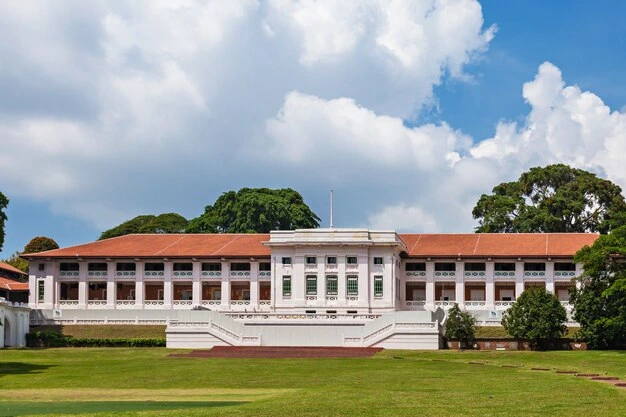
Course Details and Curriculum of Studying MBBS in Singapore 2024-25
MBBS Curriculum and Structure in Singapore
The MBBS curriculum in Singapore is structured to cover various aspects of medical education. The course is typically divided into five phases:
- Phase 1 and 2: Focus on foundational topics such as human anatomy, physiology, and basic medical sciences.
- Phase 3: Emphasizes clinical skills and includes early patient interactions.
- Phase 4 and 5: Provide in-depth clinical training across various specialties, allowing students to select electives and gain practical experience in hospitals.
MBBS Duration in Singapore
The duration of the MBBS course in Singapore is five years for local students and typically extends to six years for international students due to additional requirements.
Academic Support Services in Singapore
Universities in Singapore offer robust academic support services to assist students throughout their studies. This includes:
- Tutoring Programs: Available for students who need additional help in specific subjects.
- Counseling Services: To support mental health and well-being during the demanding course.
- Workshops and Seminars: Regular workshops on exam preparation, research skills, and career planning.
Research and Laboratory Facilities for MBBS Students
Medical institutions in Singapore boast state-of-the-art research and laboratory facilities, allowing students to engage in cutting-edge research. These facilities enable students to apply their theoretical knowledge in practical settings, thereby enhancing their understanding of medical concepts and techniques.
Online Learning Resources and Platforms for MBBS Students
To facilitate a comprehensive learning experience, universities provide various online learning resources. This includes:
- E-Libraries: Access to a vast collection of medical journals and research papers.
- Online Courses: Supplementary courses to help students reinforce their learning.
9.6. Use of Technology in Medical Education in Singapore
Singapore is known for its integration of technology in education. The use of simulation labs, virtual reality, and other advanced technologies in medical training allows students to practice their medical skills in a safe environment before interacting with real patients. This approach significantly enhances their learning experience and prepares them for real-world medical practice.
Want To Study in Singapore?
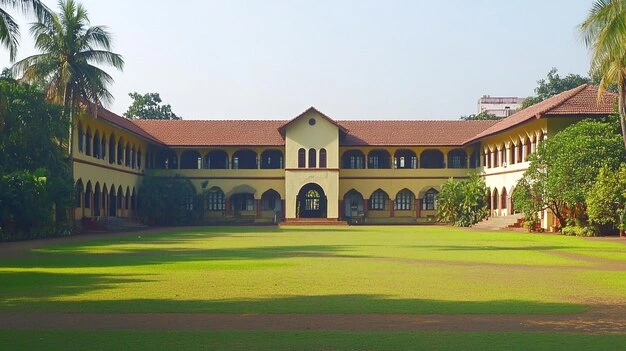
Studying MBBS in Singapore Syllabus
Key Subjects and Curriculum for MBBS in Singapore
The MBBS syllabus in Singapore is structured to provide a comprehensive medical education. The course in Singapore is divided into several phases, allowing students to build a strong foundation in medical sciences and clinical practice. The curriculum emphasizes both theoretical knowledge and practical skills, which are essential for a successful career in medicine.
Phases of the Curriculum:
- Phase 1: Focuses on foundational sciences, including subjects like Anatomy, Physiology, and Biochemistry. This phase is crucial for students to grasp the biological sciences that underpin medical practice.
- Phase 2: Covers topics such as Pharmacology and Pathology, allowing students to understand disease mechanisms and treatment principles.
- Phases 3 and 4: Emphasize clinical skills and involve rotations in various medical specialties, providing hands-on patient care experience under supervision.
- Phase 5: Prepares students for the transition into professional practice, including an overseas elective and a selective where students can focus on their areas of interest.
MBBS in Singapore Syllabus
The MBBS in Singapore syllabus is comprehensive and integrates both theoretical learning and clinical experience. Key subjects include:
- Basic Medical Sciences: Anatomy, Biochemistry, Physiology.
- Clinical Medicine: Internal Medicine, Surgery, Pediatrics, Obstetrics, and Gynaecology.
- Public Health: Epidemiology, Global Health, and Preventive Medicine.
- Ethics and Professionalism: Medical ethics, communication skills, and patient care.
This well-rounded syllabus ensures that medical aspirants are equipped with both the knowledge and practical skills necessary for the medical profession.
MBBS Internship Structure and Details in Singapore
The internship is a crucial part of the MBBS program in Singapore, providing students with essential hands-on experience. Typically, the internship lasts for one year and includes rotations in various specialties, such as:
- General Medicine
- Surgery
- Pediatrics
- Obstetrics and Gynecology
- Psychiatry
During the internship, students will be supervised by experienced doctors and have the opportunity to apply their knowledge in real-world clinical settings, which is critical for their professional development.
Licensing Exams after MBBS in Singapore
Upon completing the MBBS program, graduates must pass licensing exams to practice medicine in Singapore. The primary examination is the Singapore Medical Council (SMC) registration, which includes:
- Written Exams: Assessing theoretical knowledge in medicine.
- Practical Exams: Evaluating clinical skills
This process ensures that all medical professionals meet the required standards to provide high-quality healthcare.
Ethical Practices in Medical Education in Singapore
Singapore places a strong emphasis on ethical practices in medical education. Medical schools incorporate ethics into the curriculum to ensure that future doctors understand the importance of ethical decision-making and patient care.Topics covered include:
- Patient confidentiality
- Informed consent
- Professional conduct and responsibilities
Environmental Sustainability in Medical Universities in Singapore
Sustainability is a growing focus within Singapore’s medical education framework. Many medical universities in Singapore approved by MCI are actively engaged in initiatives to promote environmental sustainability. This includes:
- Integrating sustainability into the curriculum, teaching students about environmental health and the impact of healthcare practices on the environment.
- Implementing green practices in hospital settings, such as waste reduction, energy conservation, and the use of eco-friendly materials.
Want To Study in Singapore?

Opportunities and Career Prospects After Studying MBBS in Singapore 2024-25
Career and Job Prospects after MBBS in Singapore
Studying MBBS in Singapore provides graduates with excellent career prospects due to the country’s advanced healthcare system and growing demand for medical professionals. Medical aspirants who graduate from Singaporean universities are well-prepared for various career paths, which are often taken into consideration for medical roles globally. Doctors with a medical degree from Singapore can find job opportunities in both public and private sectors, including:
- Government Hospitals: Many graduates secure positions in public hospitals, where they can contribute to the healthcare system.
- Private Clinics and Practices: There are numerous opportunities in private healthcare settings, offering competitive salaries.
- Research Institutions: Graduates interested in academic medicine can work in prestigious research facilities, contributing to medical advancements
Higher Studies after MBBS in Singapore
After completing their MBBS, many graduates opt for further specialization through postgraduate studies. This includes pursuing:
- Residency Programs: Specializing in fields like surgery, internal medicine, pediatrics, etc.
- Fellowship Programs: Advanced training in subspecialties, enhancing their expertise and job prospects.
- PhD Programs: Some may choose to engage in research-focused paths that lead to doctoral degrees, further contributing to the medical field.
Licensing and Practice in Singapore
To practice medicine in Singapore, graduates must obtain medical registration through the Singapore Medical Council (SMC). This involves:
- Passing the required licensing examinations.
- Completing an internship year in a supervised clinical environment.
The value of a medical degree from Singapore is significant, as it is recognized by many countries, including India, and is often sought after in various healthcare settings.
Part-Time Work Opportunities for MBBS Students in Singapore
While studying, MBBS students in Singapore have the option to work part-time. This not only helps in managing living expenses but also provides valuable experience in the medical field. Opportunities include:
- Assisting in Research Projects: Students can collaborate with faculty members on research initiatives, gaining exposure to clinical practices.
- Internships and Shadowing: Engaging in internships at hospitals and clinics, providing firsthand experience in patient care.
Post-MBBS Job Placement Services
Many medical schools in Singapore offer robust career services to assist graduates in securing employment. These services may include:
- Job Fairs: Regularly organized events where students can meet potential employers from various healthcare sectors.
- Networking Opportunities: Alumni events and partnerships with healthcare institutions provide platforms for recent graduates to connect with industry professionals.
Alumni Network for MBBS Graduates from Singapore
An extensive alumni network exists for graduates from Singaporean medical schools, providing numerous benefits:
- Mentorship Programs: Alumni often mentor current students, offering guidance and advice on career paths.
- Professional Networking: Connections made through the alumni network can lead to job opportunities and collaborations in research and practice.
Alumni Success Stories
Numerous success stories exist of MBBS graduates from Singapore who have excelled in their careers. Many have taken on leadership roles in hospitals, pursued advanced research, or established successful private practices.These stories serve as inspiration for current students and highlight the potential career paths available after graduation.
Common Challenges Faced by International MBBS Students and How to Overcome Them
International students pursuing MBBS in Singapore may encounter several challenges, including:
- Academic Pressure: The rigorous curriculum demands strong time management and study skills. To manage this, students should develop effective study habits and seek support from academic resources.
- Cultural Adjustment: Adapting to a new environment can be daunting. Engaging with local communities and joining student groups can help ease the transition.
- Financial Strain: Managing tuition and living costs can be challenging. Students should create a budget and explore scholarship opportunities to alleviate financial burdens
Want To Study in Singapore?

Studying MBBS in Singapore vs MBBS in India 2024-25
Post-Graduation Opportunities after MBBS in Singapore
For many medical aspirants, pursuing MBBS in Singapore opens up a range of post-graduation opportunities. Graduates can apply for residency programs in various specialties, enhancing their medical expertise. The scope after completing MBBS in Singapore includes:
- Residency in Government Hospitals: Graduates are often recruited into public healthcare institutions.
- Research Fellowships: Opportunities to engage in medical research, contributing to advancements in healthcare.
- Specialization Programs: Further education options in specialized fields such as surgery, pediatrics, or internal medicine are available, allowing doctors to hone their skills and advance their careers.
Recognition of MBBS from Singapore
The medical degree in India holds a different weight compared to those obtained from Singaporean universities. MBBS degrees from Singapore are globally recognized and approved by MCI, ensuring that graduates can practice in India after passing the necessary licensing examinations. This international recognition allows graduates to explore job opportunities not only in India but also across various countries.
Advantages of MBBS in Singapore vs India
Studying MBBS in Singapore offers several advantages over Indian medical colleges:
- Lower Competition for Admission: In India, medical aspirants face fierce competition with approximately 14 lakh students vying for only 84,000 MBBS seats. In contrast, Singapore has sufficient seats in its medical colleges, making it more accessible for aspiring doctors.
- Quality of Education: Singaporean medical schools are renowned for their high educational standards and excellent clinical training facilities.
- International Exposure: Students studying in Singapore benefit from a multicultural environment, providing them with diverse perspectives on healthcare practices.
- Affordability: Although MBBS fees in Singapore can be higher than in Indian government colleges, they are often more reasonable than those in private Indian medical colleges.
Want To Study in Singapore?

Studying MBBS in Singapore vs MBBS in Other Countries 2024-25
Why Singapore and Not Other Countries
When comparing MBBS programs abroad, Singapore stands out for several reasons:
- High Standard of Education: Singapore’s universities are ranked among the best globally, providing high-quality medical education.
- Safety and Quality of Life: Singapore is known for its low crime rates and high quality of living, making it a safe environment for international students.
- English as the Medium of Instruction: The courses are taught in English, eliminating language barriers for many international students.
Comparison of MBBS in Singapore to Other MBBS Abroad Countries
When comparing MBBS in Singapore to other countries, several factors should be considered:
| Factor | Singapore | Other Countries |
|---|---|---|
| Recognition | Globally recognized; MCI approved | Varies by country; some are not MCI approved |
| Tuition Fees | SGD 68,950 – 77,600 (approx. INR 42-48 lakhs per year) | Can range from INR 15 to 80 lakhs depending on the country |
| Living Expenses | Approx. SGD 600 – 1,200 (INR 36,000 – 72,000) monthly) | Varies widely; some countries may be more affordable |
| Post-Graduation Opportunities | High demand for doctors; residency and research opportunities | Varies; may face competition in some regions |
| Cultural Exposure | Highly multicultural environment | Varies; some countries may have a more homogenous culture |
This comparison highlights why Singapore is an attractive option for medical aspirants seeking to study abroad. The combination of a strong educational framework, safe living conditions, and international recognition of qualifications makes Singapore a prime choice for those wishing to pursue an MBBS degree.
Want To Study in Singapore?

Scholarships and Financial Aids to Study MBBS in Singapore 2024-25
Scholarships in Singapore
Studying MBBS in Singapore can be financially burdensome due to high tuition costs. However, various scholarships are available to assist medical aspirants in managing these expenses. Notable scholarships include:
- MOE Tuition Grant: This grant helps subsidize tuition fees for international students, requiring them to work in Singapore for three years after graduation to fulfill the bond agreement.
- ASEAN Undergraduate Scholarship: This scholarship offers financial support to students from ASEAN countries, covering tuition and living expenses.
- Dr. Goh Keng Swee Scholarship: Available for students from several Asian countries, including India, this scholarship covers tuition and living expenses.
These scholarships take into consideration the financial needs of students, ensuring that deserving candidates can pursue their medical education without significant financial strain.
Financial Aids to Study MBBS in Singapore
Apart from scholarships, there are several financial aid options for students. These include:
- Bursaries: Many institutions, like NUS and NTU, offer bursaries based on financial need, which can cover a portion of tuition fees.
- Tuition Fee Loan: Administered by banks such as DBS and OCBC, this loan scheme allows students to borrow up to 90% of their tuition fees.
- SMA Medical Students’ Assistance Fund: This fund supports students with living expenses, helping them focus on their studies.
How to Apply for Scholarships and Financial Aids to Study MBBS in Singapore
The application process for scholarships and financial aids generally involves the following steps:
- Research Available Scholarships: Check the official websites of universities for a list of scholarships and financial aid options.
- Prepare Required Documents: This usually includes academic transcripts, income statements, and personal statements.
- Submit Applications: Most scholarships require applications to be submitted during the admission period, typically between October and April.
- Interviews: Some scholarships may require candidates to attend an interview as part of the selection process.
Want To Study in Singapore?

MBBS Options for Indian Students Other than Studying MBBS in Singapore 2024
Popular Countries to Study MBBS
For Indian students considering alternatives to studying MBBS in Singapore, several countries are popular options:
- Russia: Offers affordable tuition and is known for its well-established medical universities.
- Ukraine: Attracts many Indian students due to its low-cost education and English medium instruction.
- Philippines: Known for its low tuition fees and recognized medical programs.
- China: Offers a range of English-taught medical programs and has many MCI-approved universities.
Feasible Options to Study MBBS in Singapore
While Singapore is a prime destination, there are several other options that Indian students might consider:
- Study in Europe: Countries like Germany and Poland offer quality medical education at a lower cost compared to Singapore.
- Middle Eastern Countries: Institutions in countries like Qatar and UAE provide excellent medical programs with a multicultural environment.
Pros and Cons of Each Destination
| Country | Pros | Cons |
|---|---|---|
| Singapore | High quality of education, English medium, globally recognized degree | High tuition fees |
| Russia | Affordable tuition, good infrastructure | Language barrier in some regions |
| Ukraine | Low tuition fees, MCI-approved universities | Political instability in certain areas |
| Philippines | Low cost, English medium | Variable quality across institutions |
| China | MCI-approved programs, large student community | Cultural and language adjustment issues |
Want To Study in Singapore?

Living Cost While You Study MBBS in Singapore 2024-25
Lifestyle, Culture, and Student Life While You Study MBBS in Singapore
Studying MBBS in Singapore offers a unique lifestyle enriched by a diverse culture. Singapore is known for its multicultural environment, which is reflected in its food, festivals, and social activities. Singapore is divided properly into various neighborhoods, each offering a distinct cultural flavor.
- Cultural Diversity: Students will experience a mix of traditions and cuisines from various cultures, making living in Singapore enjoyable and enriching.
- Student Life: Universities like NUS and NTU provide vibrant campus life with numerous clubs and activities. From sports and cultural events to academic societies, students can engage in various extracurricular activities to balance their rigorous studies.
Safety and Accommodation for International Students to Study MBBS in Singapore 2024
Safety is a top priority in Singapore, consistently ranked as one of the safest cities globally.
- Accommodation Options: International students can choose from on-campus housing, which typically costs between SGD 400 to SGD 1,000 (approximately INR 24,000 to 60,000) per month, or off-campus options that may vary based on location.
- Secure Environment: The low crime rate ensures that students can navigate the city with ease and confidence.
Table: Comparative Living Costs for Medical Students in Various Countries
| Country | Monthly Living Cost (Approx.) | Accommodation Cost | Food Expenses | Transportation |
|---|---|---|---|---|
| Singapore | SGD 1,200 – 1,800 (INR 72,000 – 1.08 lakhs) | SGD 400 – 1,000 (INR 24,000 – 60,000) | SGD 300 – 500 (INR 18,000 – 30,000) | SGD 100 – 150 (INR 6,000 – 9,000) |
| India | INR 20,000 – 30,000 | INR 5,000 – 15,000 | INR 5,000 – 10,000 | INR 1,500 – 3,000 |
| Russia | RUB 25,000 – 40,000 | RUB 8,000 – 15,000 | RUB 6,000 – 10,000 | RUB 1,500 – 3,000 |
| Ukraine | UAH 8,000 – 12,000 | UAH 2,000 – 4,000 | UAH 2,000 – 3,000 | UAH 300 – 600 |
Language and Communication for International Students in Singapore
English is one of the official languages in Singapore, making it accessible for international students. All academic programs, including MBBS courses, are conducted in English. This eliminates potential communication barriers for medical aspirants from India and other countries.
Support Services for International Students to Study MBBS in Singapore
Singaporean universities provide extensive support services for international students:
- Orientation Programs: These help newcomers adjust to their new environment, covering essential aspects of life in Singapore, including culture, academics, and local resources.
- Academic Support: Students have access to tutoring, counseling, and study groups, ensuring they can excel in their studies.
Extracurricular Activities and Student Clubs in Singapore
Students can participate in various extracurricular activities, including sports, arts, and community service. This engagement helps build a well-rounded experience, essential for personal development during their medical training.
Cultural Adaptation and Support Services
Cultural adaptation services are available to help international students settle in smoothly. Universities often provide:
- Cultural Workshops: Sessions designed to educate students about local customs, traditions, and societal norms.
- Peer Support Groups: Connecting new students with local or senior students who can guide them through their initial months.
Want To Study in Singapore?

Health and Safety While Studying MBBS in Singapore
Healthcare Facilities for International Students in Singapore
Singapore has a robust healthcare system known for its high standards. International students can access excellent healthcare facilities, including hospitals, clinics, and specialized medical centers.
- Insurance Requirements: International students are required to have health insurance, which is often included in their university fees. This insurance typically covers outpatient and inpatient services.
Health Insurance Requirements for International Students
Health insurance is mandatory for international students studying in Singapore. It ensures that they are covered for medical emergencies and routine healthcare needs. Most universities provide health insurance as part of their package, but students should verify the coverage details.
Vaccination and Medical Check-Up Requirements
Before arriving in Singapore, students may be required to undergo vaccinations and medical check-ups. The specific requirements are provided by the Singapore immigration and checkpoint authority and include vaccinations against common diseases.
Safety Tips and Resources for International Students
International students should adhere to basic safety measures, such as:
- Staying Aware of Surroundings: Be mindful of your environment, especially in crowded places.
- Emergency Contacts: Keep a list of emergency numbers, including the Singapore embassy in India and local emergency services.
Mental Health and Counseling Services
Mental health is a crucial aspect of student life. Singaporean universities offer counseling services to help students manage stress, anxiety, and other mental health concerns. Students can access professional support whenever needed.
Pre-Departure Checklist for Studying MBBS in Singapore
Before departing for Singapore, students should ensure they have completed the following:
- Visa Approval: Ensure that you have received your visa from the Singapore embassy in India.
- Accommodation Arrangements: Confirm your living arrangements before arrival.
- Financial Planning: Have adequate funds to cover initial expenses.
Orientation Programs for International Students
Upon arrival, universities conduct orientation programs to familiarize students with the campus, local culture, and support services. These programs are crucial for easing the transition and helping students settle into their new environment.
Want To Study in Singapore?

Financial Planning to Study MBBS in Singapore
Studying MBBS in Singapore requires careful financial planning due to the substantial costs involved. With tuition fees and living expenses, it’s crucial for medical aspirants to have a clear understanding of the financial commitment required to pursue their education in this country.
The aspirants is the MBBS fee for studying in Singapore varies significantly based on the university and the residency status of the student. Here’s an overview of the approximate tuition fees:
- National University of Singapore (NUS):
- International Students: SGD 76,450 (approx. INR 46.5 lakhs) per year.
- Nanyang Technological University (NTU):
- International Students: SGD 83,350 (approx. INR 52.6 lakhs) per year.
- Duke-NUS Medical School:
- International Students: SGD 85,700 (approx. INR 54.5 lakhs).
These figures highlight the significant investment required for tuition alone, making it essential for students to explore financial aid options.
Living Costs
Apart from tuition fees, students must consider living costs, which include accommodation, food, transportation, and personal expenses. Here’s a breakdown of estimated monthly living costs:
| Expense Type | Cost (SGD) | Cost (INR) |
|---|---|---|
| Accommodation (shared room) | SGD 500 – 1,000 | INR 30,000 – 60,000 |
| Food | SGD 300 – 500 | INR 18,000 – 30,000 |
| Transportation | SGD 100 | INR 6,000 |
| Miscellaneous (utilities, etc.) | SGD 150 – 250 | INR 9,000 – 15,000 |
The total monthly living expenses range from SGD 1,050 to SGD 1,850 (approx. INR 63,000 to 1.11 lakhs). Therefore, planning for a total annual budget of around SGD 15,000 to SGD 22,000 (approx. INR 9 to 13 lakhs) is advisable.
Scholarships and Financial Aid
To ease the financial burden, several scholarship options and financial aids are available for international students:
- MOE Tuition Grant: This grant helps cover a significant portion of tuition fees, requiring recipients to work in Singapore for three years post-graduation.
- ASEAN Undergraduate Scholarship: Available for ASEAN students, this scholarship provides financial support that can cover tuition fees and living expenses.
- Dr. Goh Keng Swee Scholarship: This scholarship covers tuition, airfare, and living expenses for students from several Asian countries, including India.
Want To Study in Singapore?

Frequently Asked Questions for Studying MBBS in Singapore 2024-25
What is the best medical college in Singapore?
The best medical college in Singapore is the National University of Singapore (NUS), specifically its Yong Loo Lin School of Medicine. It is highly regarded for its rigorous curriculum, research opportunities, and excellent clinical training facilities.
What are the career opportunities after MBBS in Singapore?
After completing MBBS in Singapore, graduates can pursue various career paths, including:
- Residency programs in specialties such as surgery, internal medicine, and pediatrics.
- Research roles in healthcare institutions.
- Positions in healthcare administration and management.
- Opportunities in public and private healthcare sectors.
What is the cost of studying MBBS in Singapore?
The cost of studying MBBS in Singapore varies by university. Tuition fees range approximately from SGD 76,450 to SGD 83,350 (approximately INR 46.5 lakhs to 52.6 lakhs) per year. Additionally, living expenses can range from SGD 1,050 to SGD 1,850 (INR 63,000 to 1.11 lakhs) monthly.
What is the duration of the MBBS program in Singapore?
The MBBS program in Singapore typically lasts five years for most students. However, international students may take an additional year for preparatory courses, making the total duration around six years.
What are the eligibility criteria for MBBS in Singapore?
To be eligible for MBBS in Singapore, students must meet the following criteria:
- Completion of 10+2 education with a minimum of 50% marks in Physics, Chemistry, and Biology.
- Qualification of the NEET entrance exam.
- Proficiency in English, demonstrated through standardized tests like IELTS or TOEFL.
How do I apply for MBBS admission in Singapore?
To apply for MBBS admission in Singapore, candidates must:
- Submit an application to their chosen university, providing necessary academic documents and test scores.
- Attend an interview if required.
- Ensure they meet all eligibility requirements.
What is the MBBS admission process in Singapore?
The MBBS admission process generally involves:
- Meeting eligibility criteria and preparing for entrance exams.
- Submitting an application through the university’s online portal.
- Providing documentation, including academic transcripts and test scores.
- Attending interviews or assessments as required by the university.
What is the MBBS fee structure in Singapore for 2024?
The MBBS fee structure for 2024 varies by institution. For instance:
- At NUS, the fees are approximately SGD 76,450 for international students.
- At NTU, the fees are around SGD 83,350 for non-ASEAN international students.
What are the MBBS fees in Singapore?
MBBS fees in Singapore are generally high, with tuition fees ranging from SGD 76,450 to SGD 83,350 annually, excluding living expenses.
What is the MBBS syllabus in Singapore for 2024?
The MBBS syllabus in Singapore includes foundational sciences in the initial years, followed by clinical training in the latter years. Key subjects encompass:
- Anatomy
- Physiology
- Pathology
- Pharmacology
- Clinical Medicine.
Quick Info
- Number of Universities
- 4 major universities
- Recognition
- SMC | WHO
- Eligibility
- 10+2 with 50% in PCB
- Course Duration
- 5 years (4 years of study + 1 year internship)
- Total Average Tuition Fees
- ₹25 - ₹35 lakh
- NEET
- NEET is Mandatory
- Intake
- August/September
- Medium of Teaching
- English Medium of Instruction
Admission Queries
Read the Experiences of Students after taking University Insight's Services
These stories are grounded in real student journeys with University Insights, crafted to guide them toward achieving their educational goals and dreams of studying abroad. Take the first step and begin your own amazing adventure! With genuine insights from students who trusted University Insights, you, too, can pursue your aspirations overseas and reach your academic dreams. Start your remarkable journey today!
Ananya Patel
Singapore
Ravi Kumar
Singapore
Priya Singh
Singapore
Vikram Desai
Singapore
Neha Reddy
Singapore
Aman Verma
Singapore


